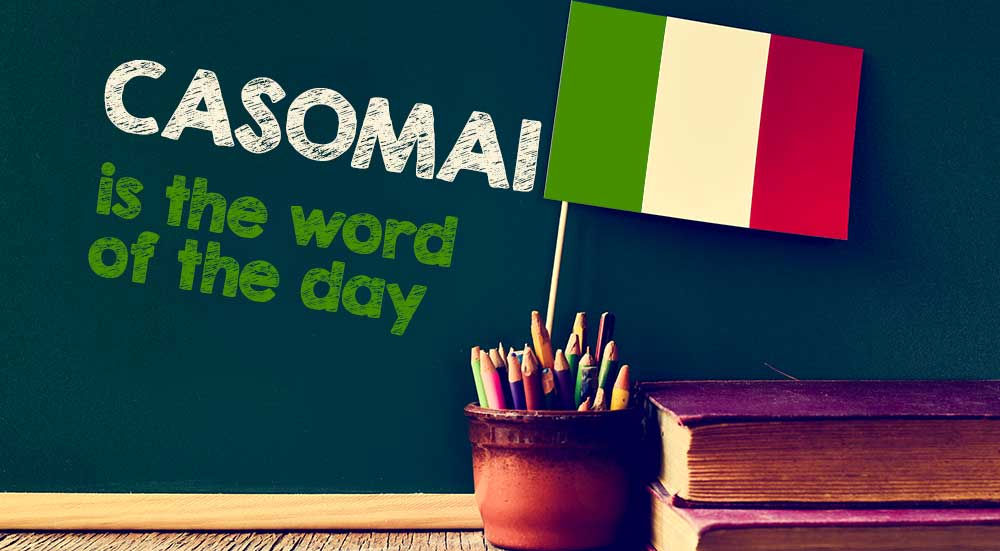Today’s word opens up a world of possibilities because we use it when talking about …just that: possibilities. Casomai (cah-soh-mah-ee) is the union of two terms, the noun caso (“case,” as in “just in case”) and the adverb mai (“never”). Its common use was attested for the first time in the 16th century, in the years when people learned good manners with Giovanni della Casa’s Galateo and politics with Machiavelli’s Principe.
In English, we translate it with “just in case,” of which it also has the meaning: indeed, we use casomai to speak about something we consider improbable, an unlikely possibility.
C’è il sole, ma prendi un maglione. Casomai cambiasse il tempo (“It’s sunny, but take a sweater, just in case the weather changes”), we say, or aspettami qui, casomai arrivasse qualcuno (“Wait for me here, just in case someone arrives”).

But casomai can also be used with a hint of sarcasm, when you want to stress that what you’re saying is definitely not going to happen: casomai ti ricordassi, riportami quel libro che ti ho prestato 6 mesi fa e ancora non mi hai restituito (“in the unlikely possibility you remember, bring back that book I lent you 6 months ago and you still haven’t returned”).

Casomai is a common word, and it belongs to all registers, so you can use it on all occasions, never mind whom you’re talking to. Last but not least, remember that, even if it is formed by two words, casomai is always written as one!
- Ti lascio il mio numero di telefono, casomai ne avessi bisogno
- I’ll leave you my phone number, just in case you need it
- Casomai volessi passare a trovarmi, sono a casa
- I’m home, in case you want to come and see me
- Abbiamo portato un ombrello, casomai si mettesse a piovere
- We brought an umbrella, just in case it starts raining





























